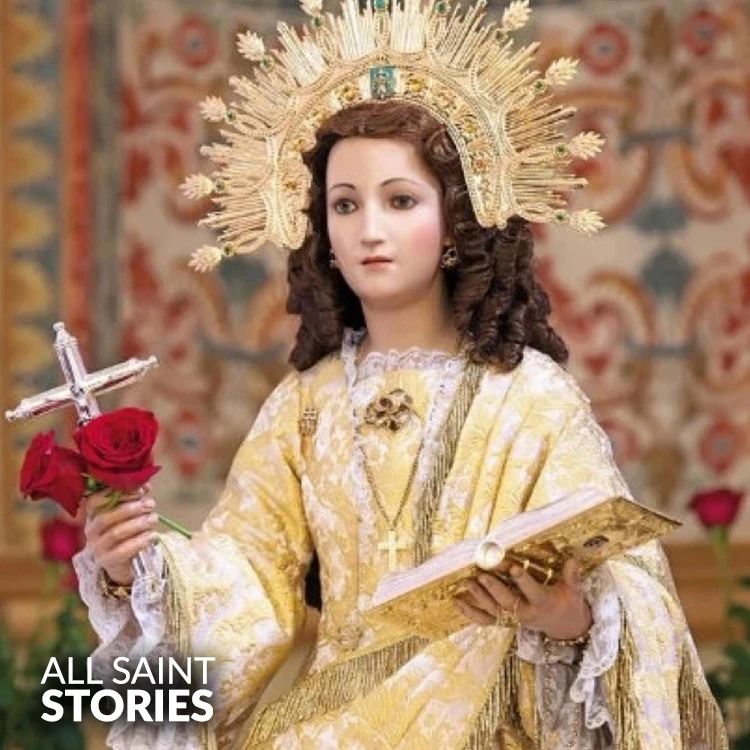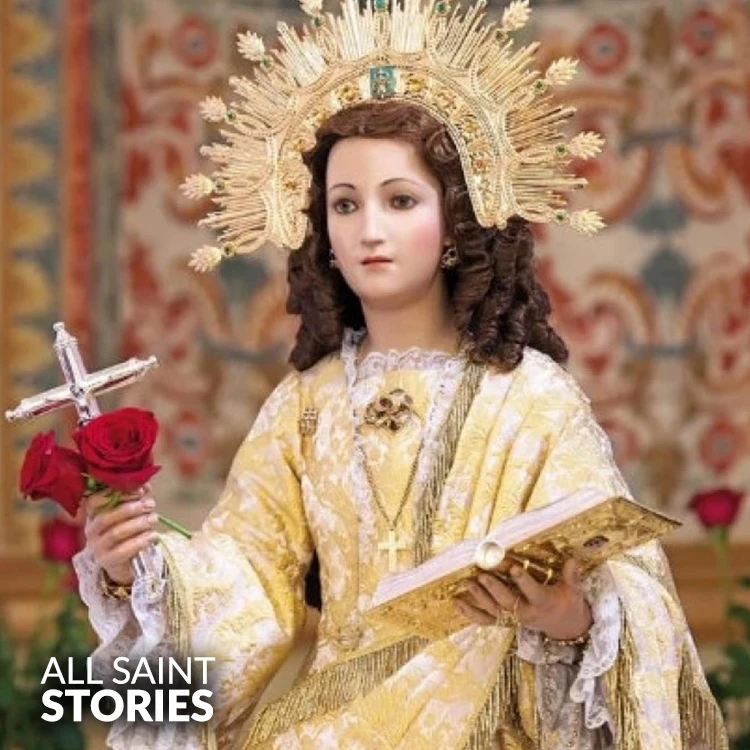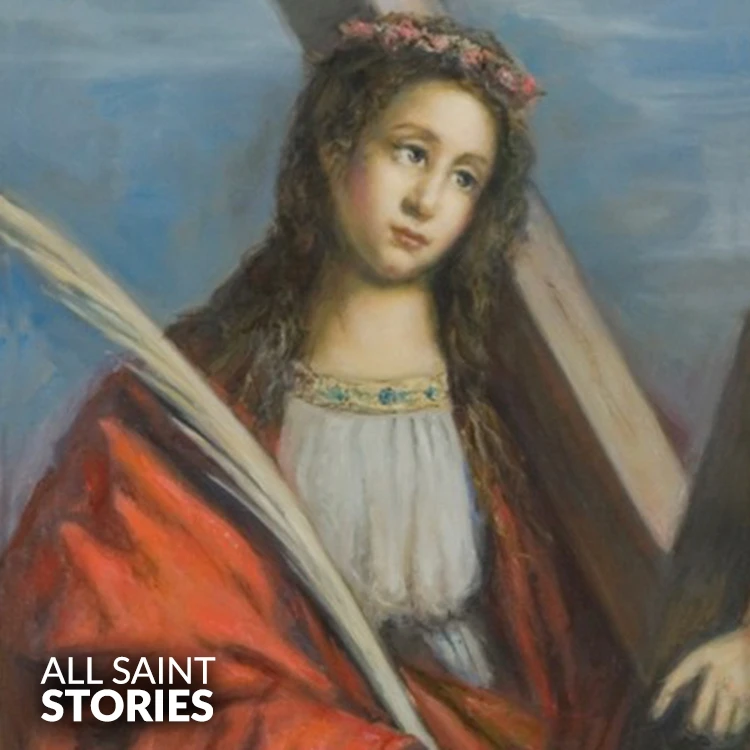"Saint Eulalia, brave and faithful servant of God, Intercede for us with your prayers. Guide us with your strength and courage, And help us remain steadfast in our faith, Even in the face of trials and suffering. May your example of devotion inspire us To live with love and compassion, Through Christ our Lord. Amen."
ST. EULALIA (MARTYR, VIRGIN)
ST. EULALIA (MARTYR, VIRGIN)

St. Eulalia was a young virgin martyr from Spain, venerated in both Barcelona and Mérida. She was known for her unyielding faith, suffering horrific torture and martyrdom under the persecution of Emperor Diocletian. She is the patron saint of Barcelona and Mérida and is honored as an example of courage and purity.
St. Eulalia is one of the most revered early Christian martyrs in Spain. There are two well-known saints with this name: St. Eulalia of Mérida and St. Eulalia of Barcelona, and some scholars believe they may have been the same person.
Born in the late 3rd century AD, Eulalia was raised in a Christian family and demonstrated an extraordinary devotion to her faith from a young age. During the persecution of Christians under Emperor Diocletian, she openly defied Roman authorities and refused to renounce her faith.
Eulalia of Mérida, at the age of 12 or 13, was said to have confronted the Roman governor Dacian, denouncing the worship of pagan gods. She was subsequently arrested and subjected to brutal torture. Historical accounts describe how she endured thirteen tortures, including being whipped, having her flesh torn with hooks, and being burned with torches. Ultimately, she was crucified or suffocated, and as she died, a miraculous snowfall covered her body, symbolizing her purity.
Similarly, St. Eulalia of Barcelona, believed to be 13 years old, suffered equally horrific martyrdom. She was reportedly stripped, scourged, and burned, and according to legend, when she died, a dove flew from her mouth, symbolizing her soul ascending to heaven.
She is one of the most honored saints in Spain, especially in Barcelona, where the Gothic Cathedral of Barcelona (La Seu) is dedicated to her. Her relics are housed in the crypt of the cathedral.
St. Eulalia is often depicted in art holding a cross, a palm branch of martyrdom, or a dove. She remains an inspiration for Christians facing persecution, reminding the faithful of the power of steadfastness and faith in Christ.
Video Not Found
The information on this website is compiled from various trusted sources. While we aim for accuracy, some details may be incomplete or contain discrepancies.
If you notice any errors or have additional information about this saint, please use the form on the left to share your suggestions. Your input helps us improve and maintain reliable content for everyone.
All submissions are reviewed carefully, and your personal details will remain confidential. Thank you for contributing to the accuracy and value of this resource.
Credits & Acknowledgments
- Anudina Visudhar (Malayalam) – Life of Saints for Everyday
by Msgr. Thomas Moothedan, M.A., D.D. - Saint Companions for Each Day
by A. J. M. Mausolfe & J. K. Mausolfe - US Catholic (Faith in Real Life) – Informational articles
- Wikipedia – General reference content and images
- Anastpaul.com – Saint images and reflections
- Pravachaka Sabdam (Malayalam) – Saint-related content and insights
We sincerely thank these authors and platforms for their valuable contributions. If we have unintentionally missed any attribution, please notify us, and we will make the correction promptly.
If you have any suggestion about ST. EULALIA (MARTYR, VIRGIN)
Your suggestion will help improve the information about this saint. Your details will not be disclosed anywhere.
© 2026 Copyright @ www.allsaintstories.com




 English
English
 Italian
Italian
 French
French
 Spanish
Spanish
 Malayalam
Malayalam
 Russian
Russian
 Korean
Korean
 Sinhala
Sinhala
 Japanese
Japanese
 Arabic
Arabic
 Portuguese
Portuguese
 Bantu
Bantu
 Greek
Greek
 German
German
 Dutch
Dutch
 Filipino
Filipino